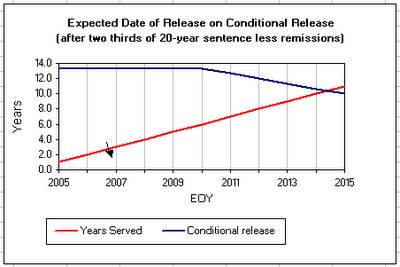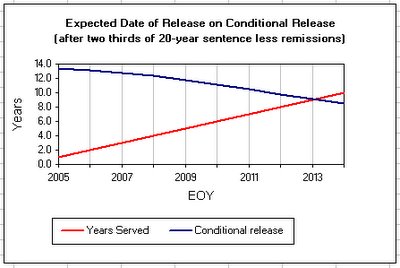Values, laws and Sheik al-Hilaly
There has been much debate about values in recent times with both Howard and Beazley weighing in with their versions of the need for immigrants to adopt the values of Australians. I suggest this is nonsense. I don’t believe there is a unique set of Australian values. Rather there are beliefs that are common to most people around the world, which are reasonably approximated by the Americans respect for life, liberty and the pursuit of happiness.
But running in parallel with those essentially secular beliefs are religious beliefs that are not necessarily compatible with common secular beliefs and in some instances are markedly different from the values of the majority. An example is the recently controversial sermon by Sheik al-Hilaly which, for all his subsequent efforts to ‘reinterpret’ his message, essentially blamed the victims of sexual assault rather than the perpetrators if the victims were scantily clad.
But you don’t need to look at Muslims to see such incompatibility of values. There are many Christians in Australia that believe that life is sacred from the moment of conception and that any abortion is murder. There are others that believe that the only Godly response to intentional murder is capital punishment. And there are other religions that would regard eating pork or beef to be mortal sins.
The truth is that for all the shared values of people around the world, and in Australia, there are areas of passionately held differences of opinion.
My view is that we should forget all about values. What matters is that people are prepared to accept the law of the country in which they live. In some ways it is a remarkable thing that the hundreds of thousands of Muslims in Australia have co-existed peacefully with a culture of bikinis, underage sex, over-indulgence in alcohol and lack of punishment for religious offences such as adultery. It is equally remarkable that Fundamentalist Christians have managed to co-exist with abortion clinics, non-observance of the Sabbath and disparagement of their God on television. What has made that peaceful coexistence possible is respect for the laws of our country, NOT shared values!
So my concern with the controversial sermon of Sheik al-Hilaly is not that he has different values to mainstream Australia. My concern is that the obvious interpretation that his faithful followers will place on his words is that if a female is scantily clad, then it is OK to break the law and commit a rape. If there isn’t a law against telling your ‘flock’ that it is OK to break the law then there damn well ought to be. Because ultimately it is our laws that make it possible for Australia’s crazy melting pot of humanity and it’s different values to continue in peace and harmony.
But running in parallel with those essentially secular beliefs are religious beliefs that are not necessarily compatible with common secular beliefs and in some instances are markedly different from the values of the majority. An example is the recently controversial sermon by Sheik al-Hilaly which, for all his subsequent efforts to ‘reinterpret’ his message, essentially blamed the victims of sexual assault rather than the perpetrators if the victims were scantily clad.
But you don’t need to look at Muslims to see such incompatibility of values. There are many Christians in Australia that believe that life is sacred from the moment of conception and that any abortion is murder. There are others that believe that the only Godly response to intentional murder is capital punishment. And there are other religions that would regard eating pork or beef to be mortal sins.
The truth is that for all the shared values of people around the world, and in Australia, there are areas of passionately held differences of opinion.
My view is that we should forget all about values. What matters is that people are prepared to accept the law of the country in which they live. In some ways it is a remarkable thing that the hundreds of thousands of Muslims in Australia have co-existed peacefully with a culture of bikinis, underage sex, over-indulgence in alcohol and lack of punishment for religious offences such as adultery. It is equally remarkable that Fundamentalist Christians have managed to co-exist with abortion clinics, non-observance of the Sabbath and disparagement of their God on television. What has made that peaceful coexistence possible is respect for the laws of our country, NOT shared values!
So my concern with the controversial sermon of Sheik al-Hilaly is not that he has different values to mainstream Australia. My concern is that the obvious interpretation that his faithful followers will place on his words is that if a female is scantily clad, then it is OK to break the law and commit a rape. If there isn’t a law against telling your ‘flock’ that it is OK to break the law then there damn well ought to be. Because ultimately it is our laws that make it possible for Australia’s crazy melting pot of humanity and it’s different values to continue in peace and harmony.



